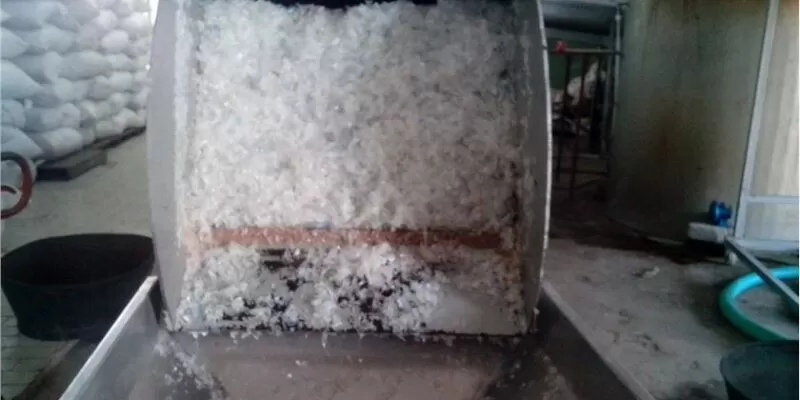You walk along a beautiful Thai beach, only to find it littered with plastic waste. The vibrant blue waters are tainted with pollution, and marine life is suffering. This is the Problem. It’s not just an eyesore; it’s a health hazard. Let’s Agitate. Imagine the tourism industry collapsing because visitors are turned off by dirty beaches. Fishermen losing their livelihoods as fish populations dwindle. The Solution? Effective plastic recycling initiatives.

Thailand has made significant strides in addressing plastic pollution through innovative recycling programs. These efforts are transforming waste into valuable resources, improving environmental health, and supporting sustainable development.
Curious how Thailand is tackling this issue? Let’s dive into the details.
What is the Scope of Environmental Pollution in Thailand?
Environmental pollution in Thailand is a pressing issue. The country’s rapid industrialization and urbanization have led to severe air and water pollution. Major cities like Bangkok suffer from high levels of PM2.5, tiny particulate matter that poses serious health risks. Water bodies are contaminated with industrial discharge, agricultural runoff, and untreated sewage.
The coastal areas, popular among tourists, are particularly vulnerable. Plastic waste is a major pollutant, with millions of tons ending up in the ocean every year. This affects marine life and ecosystems, leading to long-term environmental damage.
How Serious is Plastic Pollution?
Plastic pollution is one of Thailand’s most critical environmental challenges. The country ranks among the world’s top contributors to marine plastic debris. Single-use plastics, such as bags, bottles, and straws, are ubiquitous. They often end up in rivers and oceans due to inadequate waste management systems.
These plastics break down into microplastics, which are ingested by marine organisms. This not only harms wildlife but also enters the human food chain, posing significant health risks. Addressing this issue requires robust waste management and effective recycling strategies.
What Initiatives Have Been Taken?
Thailand has launched several initiatives to combat plastic pollution. The government has implemented policies to reduce single-use plastics and promote recycling. For example, the Plastic Waste Management Roadmap 2018-2030 aims to recycle all plastic waste by 2030.
Additionally, public awareness campaigns have been launched to educate citizens on the importance of reducing plastic use. Schools, businesses, and communities are encouraged to adopt sustainable practices. These efforts are crucial for creating a culture of environmental responsibility.
How is Plastic Recycling Implemented?
Plastic recycling in Thailand involves various processes. Collected plastic waste is sorted, cleaned, and processed into new materials. Advanced technologies, such as chemical recycling, are being adopted to handle different types of plastics more efficiently.
Recycling facilities are being upgraded to improve capacity and efficiency. Partnerships between the public and private sectors are also essential. Companies are investing in recycling infrastructure, while government incentives support these initiatives. These combined efforts ensure a more sustainable approach to managing plastic waste.
What Are the Achievements?
Thailand’s achievements in plastic recycling are commendable. The country has significantly increased its recycling rate in recent years. Innovative projects, such as converting plastic waste into fuel and building materials, are gaining traction.
Furthermore, Thailand is becoming a hub for recycling innovation in Southeast Asia. Collaborations with international organizations and adoption of best practices have enhanced the effectiveness of recycling programs. These achievements showcase Thailand’s commitment to addressing plastic pollution and promoting sustainability.
What Role Does the Community Play?
Community involvement is vital for the success of recycling initiatives. Grassroots movements and local organizations play a significant role in waste management. Community recycling centers are being established, where residents can drop off their recyclable waste.
Educational programs and workshops are conducted to raise awareness about recycling practices. Engaging the youth and encouraging participation in environmental conservation activities helps build a sustainable future. The collective efforts of communities make a substantial impact on reducing plastic pollution.
What Are the Future Prospects?
The future of plastic recycling in Thailand looks promising. With continued government support, technological advancements, and community engagement, the country is on track to achieve its recycling goals. Innovations in recycling technology will further enhance efficiency and sustainability.
Moreover, international collaborations will bring in expertise and resources, fostering a global approach to tackling plastic pollution. As Thailand continues to lead by example, other nations can learn and adopt similar strategies. The future holds great potential for a cleaner, greener Thailand.
Conclusion
Thailand’s journey towards addressing environmental pollution and enhancing plastic recycling is inspiring. The combined efforts of the government, private sector, and communities have led to significant achievements. As we continue to innovate and collaborate, we move closer to a sustainable future.
So next time you’re on a pristine Thai beach, remember the collective efforts behind that beauty. Let’s continue to support and promote plastic recycling for a cleaner environment. Together, we can make a difference.
